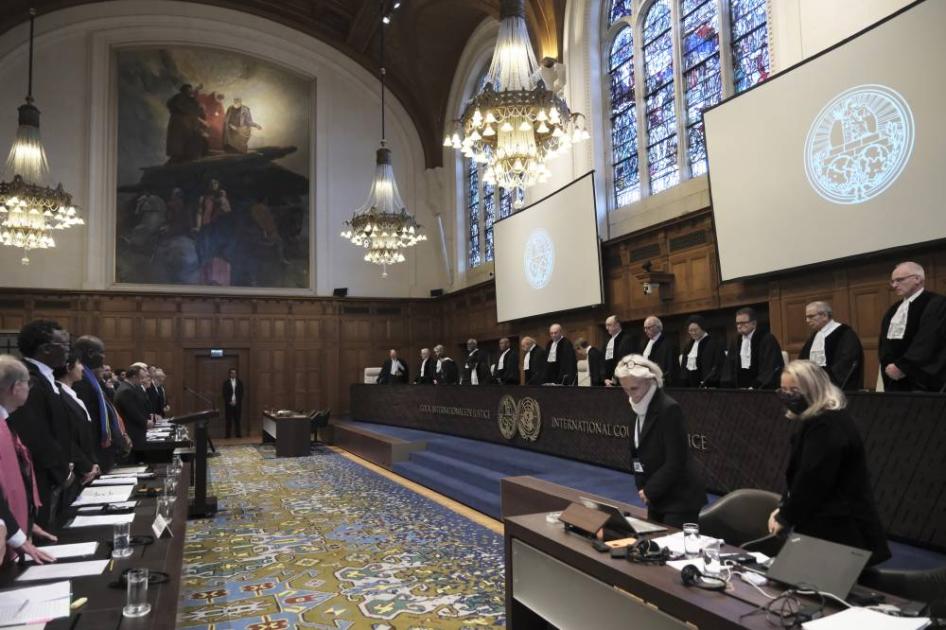Controversial British Plan to Ship Asylum Seekers to Rwanda Sparks Debate at World Economic Forum
In a heated discussion at the World Economic Forum in Davos, Switzerland, British Foreign Minister David Cameron defended his country’s plan to transport asylum seekers to Rwanda. The plan has faced significant backlash, with critics arguing that it evades scrutiny from British courts and violates international human rights statutes. However, Cameron believes that the Rwanda plan could serve as a model for other Western countries to combat the smuggling of people.
The House of Commons recently passed Prime Minister Rishi Sunak’s bill, declaring Rwanda a safe country for deportees, despite the Supreme Court of the United Kingdom ruling it unsafe. This legislation would allow the government to disregard certain sections of human rights law when it comes to Rwanda-related asylum claims.
The Rwanda plan is a bold proposal aimed at deterring individuals from crossing the English Channel in small rubber rafts. It was initially introduced by former Prime Minister Boris Johnson, who promised to “take back control” of Britain’s borders. Under this plan, migrants who meet strict asylum criteria would be flown to Rwanda, where their claims would be assessed. Unaccompanied children would not be subjected to this process. Depending on the outcomes, refugees may remain in Rwanda, move to third countries, or be returned to their home countries. However, they would not be granted asylum in Britain.
While Johnson initially promised to send “tens of thousands” of migrants to Rwanda, recent reports suggest that around 1,000 asylum seekers may be sent during the five-year trial period. The Home Office has sent letters to asylum seekers threatening their status, but no one has been sent to Rwanda thus far.
The main obstacles preventing deportation flights are the courts and both domestic and international laws. The European Court of Human Rights halted the first flight just hours before it was scheduled to depart, citing concerns about potential ill-treatment and persecution upon return to their home countries. The Supreme Court of the United Kingdom later ruled the plan unlawful.
The Rwanda plan has sparked significant controversy, with legal scholars describing it as bold, radical, reckless, and extraordinary. Critics argue that it goes beyond what most countries have done by removing asylum seekers before thoroughly considering the merits of their cases. London Mayor Sadiq Khan called it “cruel, inhumane, and unworkable,” while the archbishop of Canterbury, Justin Welby, stated that it “shames Britain.” The U.N. refugee agency also maintains that it is not compatible with international refugee law.
Despite these criticisms, Sunak remains determined to “stop the boats” and show some progress before the upcoming national election. In December, his government signed a new treaty with Rwanda to provide additional safeguards and introduced legislation asserting Rwanda as a safe country for asylum seekers. The bill faced opposition in the House of Commons, with rebels in Sunak’s own party pushing for amendments to make it more robust. However, the bill passed without amendments.
The next step is for the bill to go to the House of Lords, where objections may arise. However, it is likely to become law. Asylum seekers may still have some legal recourse if they can prove an imminent risk of serious irreversible harm in Rwanda. The European Court of Human Rights could also become involved, forcing Sunak to confront both a court and the international human rights laws that Britain helped create.
The issue of asylum seekers arriving by boat in Britain is a pressing concern. Last year, 29,437 people crossed the English Channel, with four losing their lives in the process. The Home Office’s priority is to stop these dangerous crossings and crack down on people-smuggling gangs. Lawmaker John Hayes emphasized that the recent surges in legal and illegal migration are having a devastating effect on public services. He argued that the majority of individuals arriving on small boats are economic migrants rather than genuine asylum seekers.
The Rwanda plan comes at a significant cost. The Sunak government has already paid Rwanda $300 million, with an additional $60 million due this year. The opposition Labour Party claims that sending refugees to Rwanda will cost $80,000 more than keeping them in Britain until their asylum claims are processed.
As the debate rages on, it remains to be seen whether the Rwanda plan will be implemented and if other countries will follow Britain’s lead. The fate of asylum seekers and the effectiveness of such offshore processing initiatives hang in the balance.

